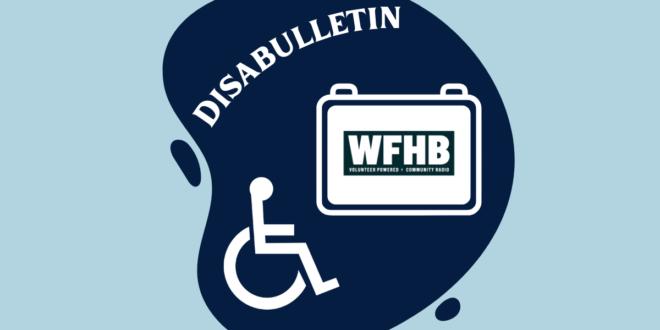Podcast: Play in new window | Download (Duration: 23:26 — 21.5MB)
Subscribe: RSS
Disability advocates call for action in the Department of Education, a ray of sunshine in the fight for personal independence for Floridians with disabilities, Enforcement of Jamaica’s disability discrimination act reaches a crossroads, and we continue our conversation with Disability Law expert William Goren regarding future Disability cases.
Good evening, I’m Abe Shapiro and this is Disabulletin, where we cover the top stories impacting the disability community across the country and around the world.
In news of the federal government, disability advocates across the nation are seeking an increase in funding the Department of Education Office of Civil Rights, which protects students with disabilities. Since its passage in 1975 and its renovation in 1990, the Individuals With Disabilities Education Act has entitled students with disabilities to a Free Appropriate Public Education. However, the process in obtaining such an education can create a considerable burden on parents, which may lead to the filing of civil rights complaints with the Department of Education’s Office of Civil Rights. In the most recent data cited in a story released today by DisabilityScoop’s Michelle Diament, “the Department of Education’s Office for Civil Rights is investigating 4,775 complaints of disability discrimination at elementary, secondary and postsecondary institutions.” Diament went on to write that a letter to President Biden and congressional leaders signed by 91 disability and civil rights organizations, contends that funding for the U.S. Department of Education’s Office for Civil Rights will need to be doubled to $280 million for the 2025 fiscal budget slated to take effect this October, up from $140 million in 2023.
In news regarding state government, Florida’s state legislature has taken steps in the issue of determining when guardianship is appropriate for persons with disabilities. Essentially, if an individual with a disability is unable to make decisions for themselves, a court may place them under guardianship, in which a person is entrusted by a court to make personal decisions on the individual with a disability’s behalf. There are two types of guardianship, one based on legal decisions including where the person with a disability will live, and financial decisions. However, a strategy known as supported decision-making is cited as a less restricting alternative to guardianship since the practice emphasizes taking the wants and needs of the person with a disability into full account before making decisions on their behalf. In the new bills, one passed unanimously by the Florida house last Thursday, with its companion set to be voted on in the senate tomorrow, courts would have to assess a person with a disability’s needs before determining whether or not to appoint a guardian on their behalf, while still ensuring that said person with a disability has final say over personal decisions.
In international news, on February 14, the two-year grace period expired for businesses and public accommodations across Jamaica to make their buildings accessible for individuals with disabilities. Jamaica first passed a law banning disability discrimination in 2014, with regulations added to the bill in 2022.
An article published the same day by the Jamaica Gleaner cited comments by Jamaican Senator Lambert Brown, made last December in session, in which he stated that “lawmakers are the biggest promoters of lawbreaking when it comes to the Disabilities Act”. Brown went on to cite that Gordon House, the hub of Jamaica’s legislature, is not accessible and described his difficulty in accessing the legislative chamber upon his return after recovering from sickness and brought up a 2016 promise by Senate President Tom Tavares-Finson to build a lift in the building.
In the same article, Executive director of the Jamaica Council for Persons with Disabilities Dr Christine Hendricks unveiled the process by which persons with disabilities may file a report to the council if their rights are violated. The council would then send the complaint to a tribunal should the offending entity decline to comply.
“People with disabilities are part of the citizenry of our country who have that right to access the service that you provide,” she said. Hendricks also cited an accessibility checklist on the Council’s website to assist businesses and other entities impacted by the law in making their places of operation more accessible. Hendricks said, “You’ll find the accessibility checklist to help you conduct a simple audit to ensure that you know what you need to fix – the doorway that needs to be widened, the ramp and the rail that needs to be in place, the signage that should be in your building to give direction or to give guidance.”
And now, part two of our interview on the latest Court cases concerning disability with William Goren, one of our nation’s most renowned experts on disability law. Previously, Mr.Goren spoke about the most recent disability Supreme Court case. Today, he joins us to discuss the next frontier in Disability Litigation.
You’re listening to Disabulletin, where we cover the top stories impacting the disability community across the country and around the world.
Abe Shapiro, WFHB News
 WFHB Bloomington Community Radio
WFHB Bloomington Community Radio


